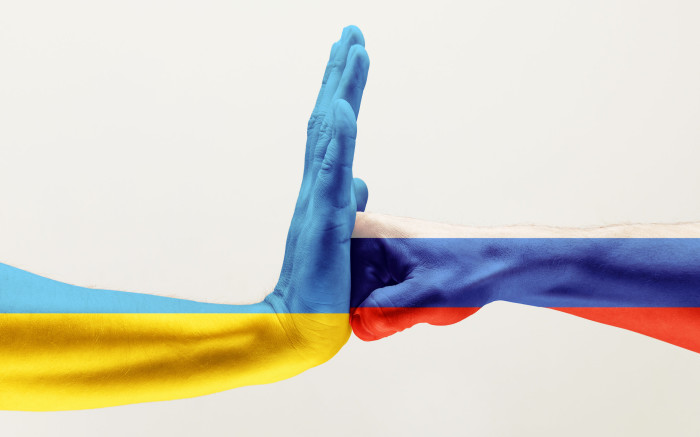
Life for many Central Asian migrants in Russia after the invasion of Ukraine was no longer the same: wages fell and men risked being sent to the front by Moscow.
FILE: While around 1.3 million people from Central Asia still immigrated to Russia in the first quarter of 2023, some are choosing to leave the country rather than be forced to go to Ukraine. Image: melnyk58/123rf.com
ALMATY, Kazakhstan – After living and working in Russia for the past decade, Tajik construction worker Zoir Kurbanov recently decided it was time to go home.
Life for many Central Asian migrants in Russia after the invasion of Ukraine was no longer the same: wages fell and men risked being sent to the front by Moscow.
Then Kurbanov received an offer for jobs on construction sites in Mariupol and Donetsk – cities in occupied Ukraine.
“I declined,” said the 39-year-old.
He decided to take a significant pay cut and return to Tajikistan “because of the war” and take a construction job in the capital, Dushanbe.
Russia is increasingly trying to lure Central Asian migrants to work in the parts of Ukraine it occupies or even to enlist in its army.
While around 1.3 million people from Central Asia still immigrated to Russia in the first quarter of 2023, some are choosing to leave the country rather than be forced to go to Ukraine.
Moscow offers high salaries, benefits and even the promise of citizenship to work in places like Mariupol, which will be virtually razed by the Russian army in 2022.
Meanwhile, draft offices and recruitment campaigns are trying to persuade them to join the Russian army.
While there are no exact figures on how many migrant workers have left Russia – or how many they have sent to work in Ukraine or recruited into the army – Kurbanov’s case is no exception.
“POLICE EVERYWHERE”
If offers of record wages don’t work, Russian authorities have other options to force migrants to the front.
“Russian police checked me everywhere and asked if I had completed my military service,” said Argen Bolgonbekov, a 29-year-old who served in the Kyrgyzstan border force.
What starts as a document review can often escalate, he said. Under the pretext of uncovering a real or invented crime, Russian authorities sometimes present migrants with a difficult choice: prison or the army.
“In Russia, where there are problems with human rights and labor rights, migrants are at risk. It’s easier to deceive them,” Batyr Shermukhammad, an Uzbek journalist specializing in migration issues, told AFP.
Street searches and police raids on dormitories and workplaces were already commonplace for Central Asian migrants in Russia before the war. But the invasion has added a new element of risk.
Bolgonbekov was relieved to have just been deported back to Kyrgyzstan after police found irregularities in his documents.
“It’s a good thing because you couldn’t walk around there in peace anymore,” he told AFP in a textile workshop in the Kyrgyz capital Bishkek.
Farhodzhon Umirzakov, an Uzbek who worked in Russia for six years before he was also deported, said he was “worn down” by the climate there.
“The pressure on migrants increased. We were treated disrespectfully. There were more and more raids – people were even arrested in mosques,” the 35-year-old told AFP.
He said an Uzbek man he knew was sentenced to 12 years in prison for drug trafficking and ended up in the army fighting in Ukraine.
Independent media in Central Asia have also reported similar cases.
“RUSSIA NEEDS SOLDIERS”
Russia is no longer hiding the fact that it is deliberately using migrants for military service.
In early 2023, lawmaker Mikhail Matveyev called for Central Asians who were recently granted Russian citizenship to be drafted in place of ethnic Russians.
“Why aren’t they mobilized? Where are the Tajik battalions? There is war, Russia needs soldiers. Welcome to our citizenship,” he said in a post on Telegram.
War propaganda uses Soviet images of the victory over Nazi Germany, in which Central Asians fought for the Red Army.
In early November, Russia’s Vladimir region released a recruitment video showing two men purporting to be Tajik doctors talking about their decision to go to the front to fight. In the video they called on their compatriots to “follow our example”.
In another video, an Uzbek man said he joined the army because “Russia is a bulwark. If it falls, our countries will fall too.”
The campaigns were not well received by governments in Central Asia.
Although economically dependent on Moscow, they strive to maintain their sovereignty and regularly call on their citizens not to take part in the war.
Despite the increasing pressure, Russia remains “the primary destination” for Central Asian workers, said journalist Shermukhammad.
There is no other country where migrants can “enter without a visa, speak Russian and earn money,” he said.
Kurbanov, the Tajik construction worker who recently returned home, agreed.
“If the war ends tomorrow, I will return to Russia the next day,” he said.






Recent Comments